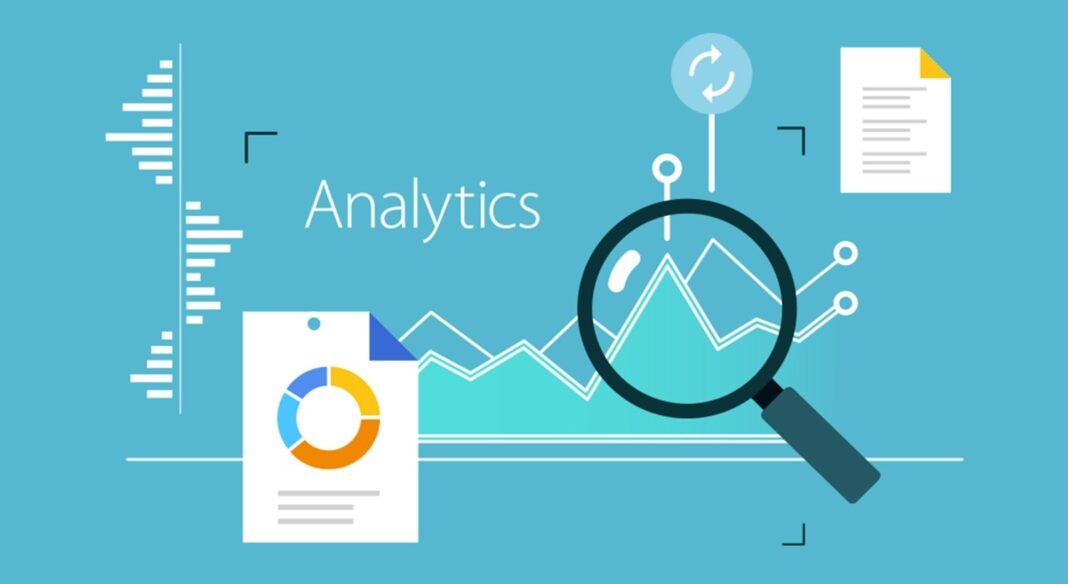Are you a website owner looking to boost your online visibility and attract more organic traffic? Monitoring and analyzing your website’s SEO performance is crucial for achieving long-term success. By understanding how your website is performing in search engine rankings and identifying areas for improvement, you can make informed decisions and optimize your SEO strategy. In this article, we will guide you through the process of monitoring and analyzing your website’s SEO performance, helping you take your online presence to new heights.
In the competitive digital landscape, having a strong SEO strategy is vital for driving organic traffic to your website. As a website owner, you understand the importance of implementing effective SEO techniques. However, it’s not enough to rely solely on these techniques. Regular monitoring and analysis of your website’s SEO performance are crucial to identify the strengths, weaknesses, and opportunities for improvement. By staying proactive in monitoring the performance of your website’s SEO, you can make informed decisions to enhance its visibility and attract more organic traffic. Partnering with the best digital marketing agency can provide expert guidance and support in optimizing your website’s SEO performance. Their expertise and strategies can help you stay ahead of the competition and achieve long-term success in the digital realm.
Table of Contents
- 1 1. Setting Up Website Analytics
- 2 2. Tracking Keyword Rankings
- 3 3. Analyzing Organic Traffic
- 4 4. Monitoring Backlinks
- 5 5. Assessing On-Page SEO Factors
- 6 6. Examining User Engagement Metrics
- 7 7. Measuring Conversion Rates
- 8 8. Monitoring Website Speed and Performance
- 9 9. Analyzing Competitor SEO Strategies
- 10 10. Making Data-Driven SEO Decisions
- 11 11. Utilizing SEO Tools and Software
- 12 12. Staying Up-to-Date with SEO Trends
- 13 13. Implementing Continuous Optimization
- 14 14. Conclusion
- 15 FAQs
- 15.1 Q1. How often should I monitor my website’s SEO performance?
- 15.2 Q2. Are there any free tools available for monitoring SEO performance?
- 15.3 Q3. What is the importance of monitoring backlinks for SEO?
- 15.4 Q4. How long does it take to see the impact of SEO changes?
- 15.5 Q5. Can I improve my website’s SEO performance without technical expertise?
1. Setting Up Website Analytics
To effectively monitor your website’s SEO performance, you need to set up a robust website analytics system. One popular tool is Google Analytics, which provides valuable insights into various aspects of your website’s performance. By integrating the analytics code into your website, you can track crucial metrics and gather data for analysis.
2. Tracking Keyword Rankings
Keywords are the foundation of SEO. Monitoring your website’s keyword rankings is crucial to understand how well your site is positioned in search engine results. Tools like SEMrush, Ahrefs, or Moz can help you track keyword rankings, analyze search volume, and identify keyword opportunities.
3. Analyzing Organic Traffic
Monitoring organic traffic is essential to assess the effectiveness of your SEO efforts. Google Analytics can provide detailed information on the number of organic visitors, their behavior on your site, and the sources that drive the most traffic. By analyzing this data, you can optimize your content and improve your website’s visibility.
4. Monitoring Backlinks
Backlinks are an integral part of SEO and contribute to your website’s authority and rankings. Tools like Ahrefs or Majestic allow you to monitor your backlink profile, identify new backlinks, and analyze the quality and relevance of those links. Regularly monitoring and disavowing toxic backlinks can help maintain a healthy link profile.
5. Assessing On-Page SEO Factors
On-page SEO factors directly impact your website’s visibility in search engine results. Analyzing elements like title tags, meta descriptions, headers, and keyword usage is crucial. Tools like Yoast SEO or SEOptimer can provide insights and suggestions for optimizing these on-page elements.
6. Examining User Engagement Metrics
Metrics on user engagement show how visitors engage with your website. Analyzing metrics like bounce rate, time on page, and pages per session helps you gauge the quality and relevance of your content. Google Analytics provides comprehensive user engagement data, allowing you to make data-driven decisions to improve user experience.
7. Measuring Conversion Rates
While driving traffic is important, converting that traffic into customers or leads is the ultimate goal. Monitoring conversion rates helps you understand the effectiveness of your website in achieving your business objectives. Implementing conversion tracking with tools like Google Analytics or heat mapping software can provide valuable insights into user behavior and conversion funnels.
8. Monitoring Website Speed and Performance
Website speed and performance directly impact user experience and SEO.High bounce rates and lower rankings might result from slow-loading websites. Tools like Google PageSpeed Insights or GTmetrix allow you to assess your website’s speed and identify areas for improvement. Optimizing image sizes, enabling caching, and minimizing code can significantly enhance your website’s performance.
9. Analyzing Competitor SEO Strategies
Knowing how your competitors are using SEO can give you useful information and point up new chances. Analyze their keywords, backlinks, content strategy, and social media presence to gain a competitive edge. Tools like SEMrush or SpyFu offer competitor analysis features to assist you in this process.
10. Making Data-Driven SEO Decisions
Analyzing data is crucial, but it’s equally important to draw actionable insights from that data. Regularly review your analytics reports, identify trends, and make informed decisions to optimize your SEO strategy. Experiment with different approaches, track the results, and iterate based on data-driven insights.
11. Utilizing SEO Tools and Software
Numerous SEO tools and software are available to simplify the monitoring and analysis process. From keyword research tools to rank tracking software, leveraging the right tools can save time and provide deeper insights into your website’s SEO performance. Explore popular tools like SEMrush, Moz, or Google Search Console to enhance your monitoring capabilities.
12. Staying Up-to-Date with SEO Trends
The SEO landscape is continually evolving, with search engine algorithms and best practices changing regularly. Staying up-to-date with the latest SEO trends is crucial to adapt your strategy accordingly. Follow reputable SEO blogs, attend industry conferences, and join relevant communities to stay informed and ahead of the curve.
13. Implementing Continuous Optimization
SEO is a continual process that calls for ongoing optimisation. Regularly monitor and analyze your website’s SEO performance, make necessary adjustments, and track the outcomes. By continuously optimizing your SEO strategy, you can improve your website’s visibility, attract more organic traffic, and achieve sustainable long-term growth.
14. Conclusion
An essential component of any effective online presence is tracking and evaluating the SEO performance of your website. By following the steps outlined in this article, you can gain valuable insights into your website’s performance, identify areas for improvement, and make data-driven decisions to enhance your SEO strategy. Partnering with an organic SEO agency can provide expert guidance and support in monitoring and optimizing your website’s SEO performance. Their specialized knowledge and strategies can help you stay ahead of the curve, adapt to changes in search engine algorithms, and achieve long-term success in improving your online visibility. Remember, SEO is an ongoing process, so it’s crucial to stay vigilant, adapt to changes, and collaborate with an organic SEO agency to continuously optimize your website and attract organic traffic.
FAQs
Q1. How often should I monitor my website’s SEO performance?
It’s recommended to monitor your website’s SEO performance regularly, at least once a month. This allows you to track trends, identify changes, and make timely adjustments to your strategy.
Q2. Are there any free tools available for monitoring SEO performance?
Yes, several free tools like Google Analytics, Google Search Console, and Google PageSpeed Insights provide valuable insights into your website’s SEO performance. They offer a range of features to help you track, analyze, and optimize your SEO efforts.
Q3. What is the importance of monitoring backlinks for SEO?
Monitoring backlinks is crucial as they contribute to your website’s authority and rankings. By analyzing your backlink profile, you can identify toxic links, build high-quality backlinks, and improve your website’s overall SEO performance.
Q4. How long does it take to see the impact of SEO changes?
The time it takes to see the impact of SEO changes can vary depending on several factors, such as the competitiveness of your industry and the nature of the changes implemented. Generally, it can take a few weeks to several months to observe significant results.
Q5. Can I improve my website’s SEO performance without technical expertise?
Yes, you can improve your website’s SEO performance without extensive technical knowledge. By following SEO best practices, conducting keyword research, creating high-quality content, and monitoring your website’s performance, you can make noticeable improvements to your SEO efforts.




